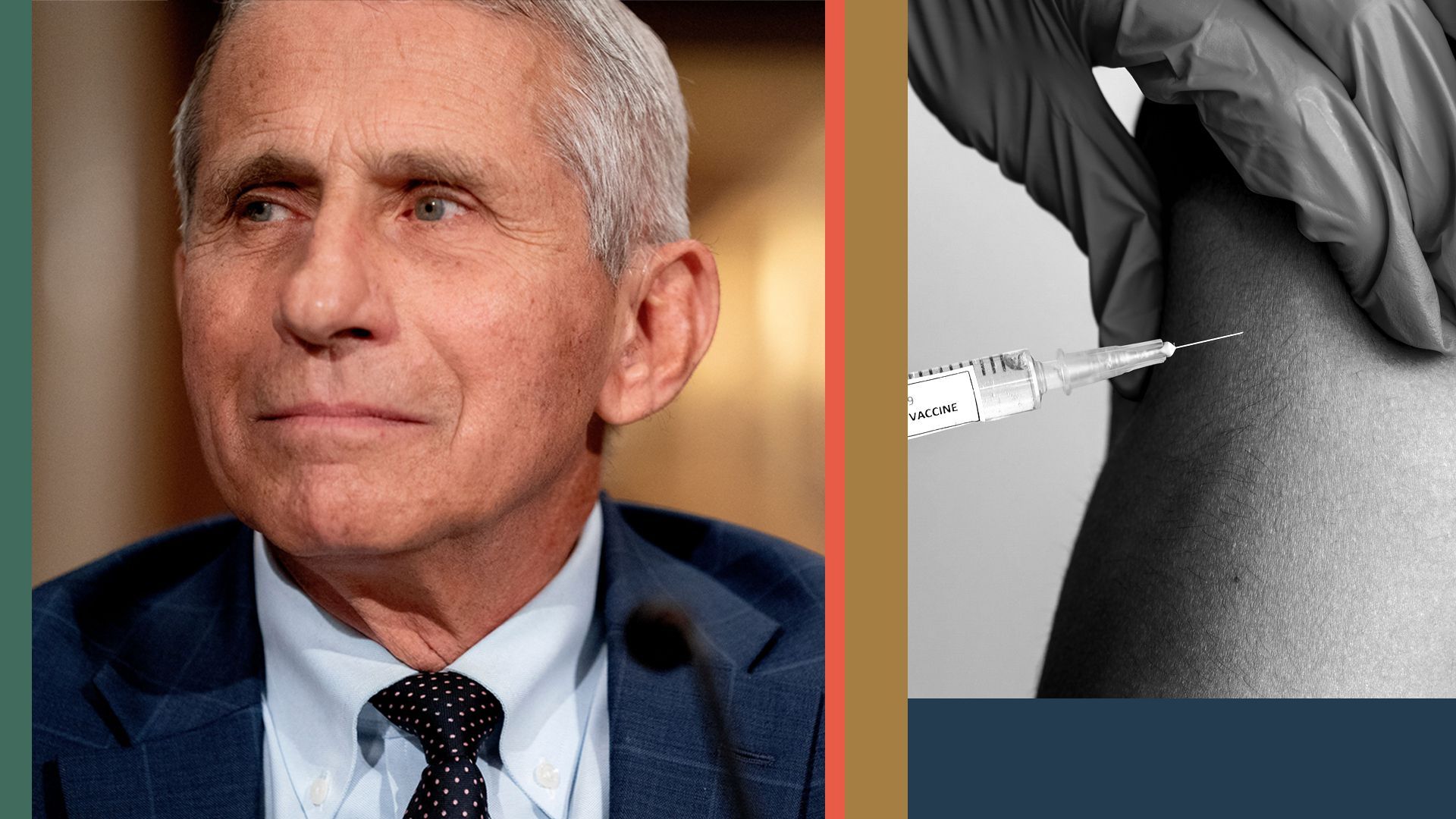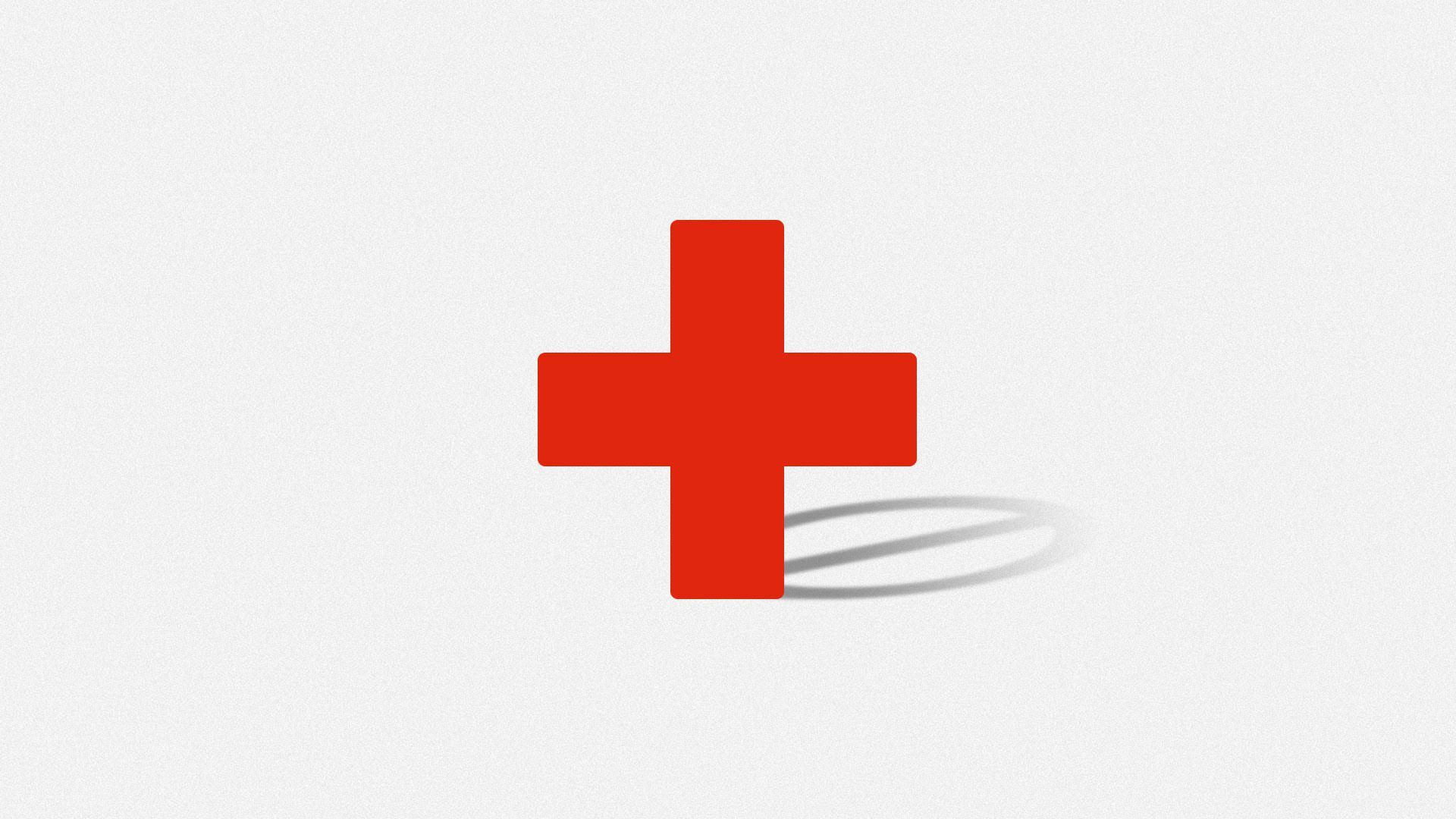| |
| |
| |
| Presented By PhRMA |
| |
| Axios Vitals |
| By Tina Reed ·Oct 28, 2021 |
| Good morning, Vitals readers. Today's newsletter is 846 words, or a 3-minute read. |
| |
| |
| 1 big thing: Democrats' risky health care play |
 |
|
| Illustration: Sarah Grillo/Axios |
| |
| Some Democrats say it's possible that pieces of their social policy agenda end up being enacted or extended for only a year or two, including major Affordable Care Act and Medicaid provisions, Axios' Caitlin Owens reports. Why it matters: Limited terms may be the only way Democrats can strike a deal within their budget. - But the risk is that Republicans may not feel compelled to extend these programs if they're able to regain control of Congress through next year's midterms.
- "I expect Republicans would be glad to take back the mantle of the child tax credit but Democrats should not fool themselves into thinking Republicans will feel any real pressure to extend these health care policies," said Brendan Buck, a longtime aide to former Republican House Speaker Paul Ryan.
What they're saying: Extending programs for only a year or two is a "possibility," Senate Majority Whip Dick Durbin (D-Ill.) told Axios. - Extending enhanced ACA subsidies and closing the Medicaid coverage gap were measures that "we wanted ... to be permanent," said Sen. Ben Cardin D-Md.). "Clearly there's a lot of pressure to get as much in as we can, [which] means shorter periods."
Go deeper. |
    |
| |
| |
| 2. COVID cases fall by 20% |
 Data: N.Y. Times; Cartogram: Kavya Beheraj/Axios The number of new COVID-19 cases continues to plummet all across the U.S., Axios' Sam Baker and Kavya Beheraj report. By the numbers: The U.S. is now averaging roughly 70,000 new cases per day, a 20% drop over the past two weeks. - Deaths fell 15% over the same period, to an average of 1,400 per day.
- That's still a lot, equivalent to a 9/11 roughly every two days. But that number has been steadily coming down throughout the fall, and likely will continue to drop.
What we're watching: Although localized outbreaks will crop up throughout the fall and winter, the pace of new infections has fallen over the past two weeks in 45 states. - The areas most at risk for another severe flare-up are largely concentrated in the West.
- Alaska still has the largest number of cases relative to its population, followed by Montana, Wyoming, North Dakota and Idaho.
Share this story. |
    |
| |
| |
| 3. Quote du jour: Kids' shots |
 |
|
| Photo illustration: Sarah Grillo/Axios. Photo: Stefani Reynolds/Pool/AFP via Getty Images |
| |
| "I sure as hell wouldn't want them to get COVID-19. I would vaccinate them in a second." — NIAID director Anthony Fauci on if his three adults daughters were in the age group under 12 that may soon be eligible for COVID vaccines in an interview with Axios' Eileen Drage O'Reilly. |
    |
| |
| |
| A message from PhRMA |
| The cost of medicine needs to be predictable and affordable |
| |
 |
| |
| A majority of patients said they would prioritize lowering out-of-pocket costs over insurance premiums. In fact, 3 in 10 Americans who have insurance still face a financial barrier to care. Fixing health care means putting patients first. Learn more from the Patient Experience Survey. |
| |
| |
| 4. Public health communication lessons |
 |
|
| Illustration: Megan Robinson/Axios |
| |
| A pandemic isn't just a medical emergency — it's also a communications emergency. But the U.S. public health establishment, hamstrung by bad data and political interference, has struggled with the latter, Axios' Bryan Walsh writes. In just the latest example, an FDA expert panel on Tuesday endorsed Pfizer's COVID-19 vaccine for 5-to-11-year-olds, with 17 votes in favor and one abstention. - The decision is a significant step but could present yet another communications challenge for the public health establishment.
- Members of the advisory board argued over the potential risk-benefit balance of vaccinating kids, given their relatively low risk from COVID-19 and the small increase risk of myocarditis from vaccination.
Be smart: This is how science actually works — theories are argued and advanced or abandoned as new data and results come in. - But during the pandemic, this has been happening in real-time and in full view of an often confused and irate public, with politicians hovering in the background.
The bottom line: Public health officials can't talk our way out of a pandemic, but they can make it worse. Protecting the U.S. from the next outbreak will require communication strategies as innovative as mRNA vaccines. Read more. |
    |
| |
| |
| 5. ER firm accused of over-billing |
 |
|
| Illustration: Eniola Odetunde/Axios |
| |
| UnitedHealthcare is suing TeamHealth, a company that staffs hospital emergency rooms, alleging TeamHealth billed for expensive ER services that didn't match the care doctors actually provided, Axios' Bob Herman writes. Driving the news: UnitedHealthcare analyzed ER claims and records from TeamHealth, saying they found 62% of TeamHealth's claims involving the highest-paying ER codes were unjustified by notes in medical records. - In one example, a 23-year-old man in Texas went to an ER staffed by TeamHealth "complaining of epigastric pain after eating a chili dog," according to the lawsuit. Doctors gave the man Maalox, a common antacid for heartburn, and sent him on his way.
- TeamHealth used the highest-severity ER code, reserved for things like heart attacks or severe trauma, and charged $1,712 for the visit, UnitedHealthcare alleges.
The other side: "Courts have repeatedly dismissed these claims in other jurisdictions ... United continues to generate record profits by down coding claims and refusing to consider the expertise of frontline clinicians who make a diagnosis," TeamHealth CEO Leif Murphy said in a statement. Flashback: UnitedHealthcare and TeamHealth have a history of suing each other, with TeamHealth saying the insurer routinely underpays. |
    |
| |
| |
| 6. 1 fun thing: Now that's savage |
 |
|
| Megan Thee Stallion. Photo: Tim Mosenfelder/FilmMagic via Getty Images |
| |
| Grammy-winning rapper Megan Thee Stallion will soon be able to boast the title of graduate, holding a degree in health administration from Texas Southern University. - She plans to use some of her earnings to open an assisted-living facility that her classmates will operate, the New York Daily News reports.
|
    |
| |
| |
| A message from PhRMA |
| The cost of medicine needs to be predictable and affordable |
| |
 |
| |
| A majority of patients said they would prioritize lowering out-of-pocket costs over insurance premiums. In fact, 3 in 10 Americans who have insurance still face a financial barrier to care. Fixing health care means putting patients first. Learn more from the Patient Experience Survey. |
| |
| ☺️ Did someone share this newsletter with you? Here's how to subscribe. |
 | | It'll help you deliver employee communications more effectively. | | |










No comments:
Post a Comment